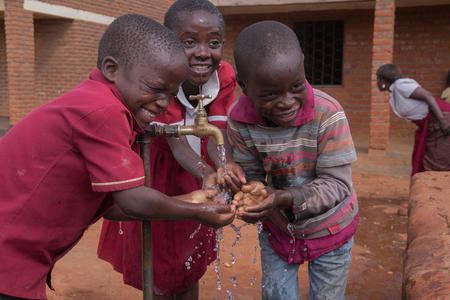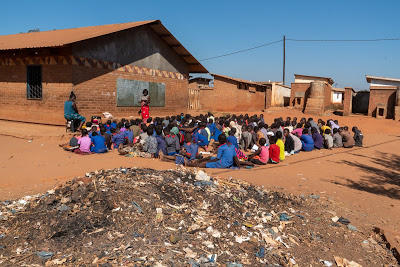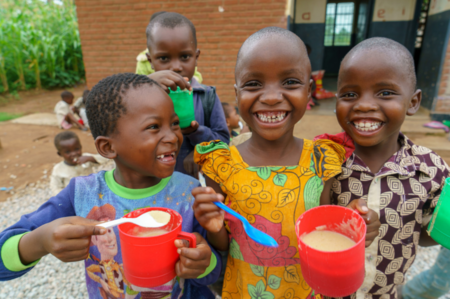The status of water, sanitation and hygiene (WASH) services in most schools in Malawi remains unacceptable. Some schools still don't have sanitation facilities, and less than 5% of schools provide handwashing facilities with soap. While access to water is quite encouraging at 81%, it still means that children from 19% of the schools drink from unprotected sources.
Our work in school settings is built on the understanding that WASH and education are human rights and critical to human development. Without these facilities in schools, children are more likely to get ill and miss out on an education. Better water, sanitation and hygiene in schools improves health, boosts school attendance and promotes gender equality.
Furthermore, children and adolescents are effective agents of hygiene behaviour change, sharing the lessons they learn in school with their families and wider communities.
We work together with the Ministry of Education, Science and Technology and other sector players to advocate for and implement better water, sanitation and hygiene facilities in schools.
We also collaborate with local communities for contextually local solutions, as well as the private sector and specialist organisations for advice on inclusion such as accessible toilets for persons with disabilities and menstrual hygiene management facilities for girls.
Hygiene behaviour change is an important part of our work, and we use schools as centres through which to teach good hygiene practices.
Through our work, we have reached over 50 schools in the past five years: that's over 120,000 children and adolescents. Our work around hygiene behaviour and improved sanitation facilities has had a particularly positive impact on girls, who no longer have to miss school because of menstruation.
WASH for Healthy Learning Project
The state of water, sanitation and hygiene (WASH) in schools impacts the education and health outcomes of students. Lack of suitable WASH infrastructure and good hygiene in schools contributes to the absenteeism, particularly among girls.
The absence of these basic rights is a key contributor to childhood illnesses like diarrhoea. In Malawi, more than 3100 children under five die a year from diarrhoea. Globally, illnesses due to contaminated water cause children to lose 443 million school days each year.
Without safe water, descent toilets and hygiene in schools, girls face additional challenges in getting an equal chance at good education. With no private place to manage periods(menstruation) with dignity, girls will often be forced to stay at home. Some never go back.
This contribute significantly to a cycle of disempowerment where dropping out of school leads to early marriage, early childbearing and a subsequent lack of income-generating opportunities that continue throughout a woman’s life. The project aims to break this cycle of disempowerment by providing access to safe and inclusive drinking water, gender sensitive and private toilets with handwashing facilities and by raising awareness on best hygiene behaviours in schools.
Through a three-year intervention, the project aims to create healthy learning environments for girls and boys in Lilongwe district, Malawi. The project is targeting three schools namely, Chipala, Mlodza, M’buka and Kabwawa and is expected to positively impact 21,724 learners.
Related project
Deliver Life II Project
The Deliver Life II Project aims at improving service delivery and health outcomes for women, adolescent girls and under five children living in the low-income areas of Malawi. The project, which is implemented in Machinga and Zomba districts, will ensure a sustainable access to WASH in the maternity wards and early childhood centres as a way of promoting infection prevention.
Specifically, the project will achieve the following outcomes:
• Increased access to sustainable safe water, sanitation and adoption of good hygiene behaviour in targeted Health Care Facilities (HCFs), Early Chidhood Development Centers (ECDCs) and communities.
• Empowered women and adolescent girls that are meaningfully involved in the realization of their rights to WASH for better maternal, neonatal and child health (MNCH) outcomes; and • Prioritization of WASH in health service delivery and early childhood development


